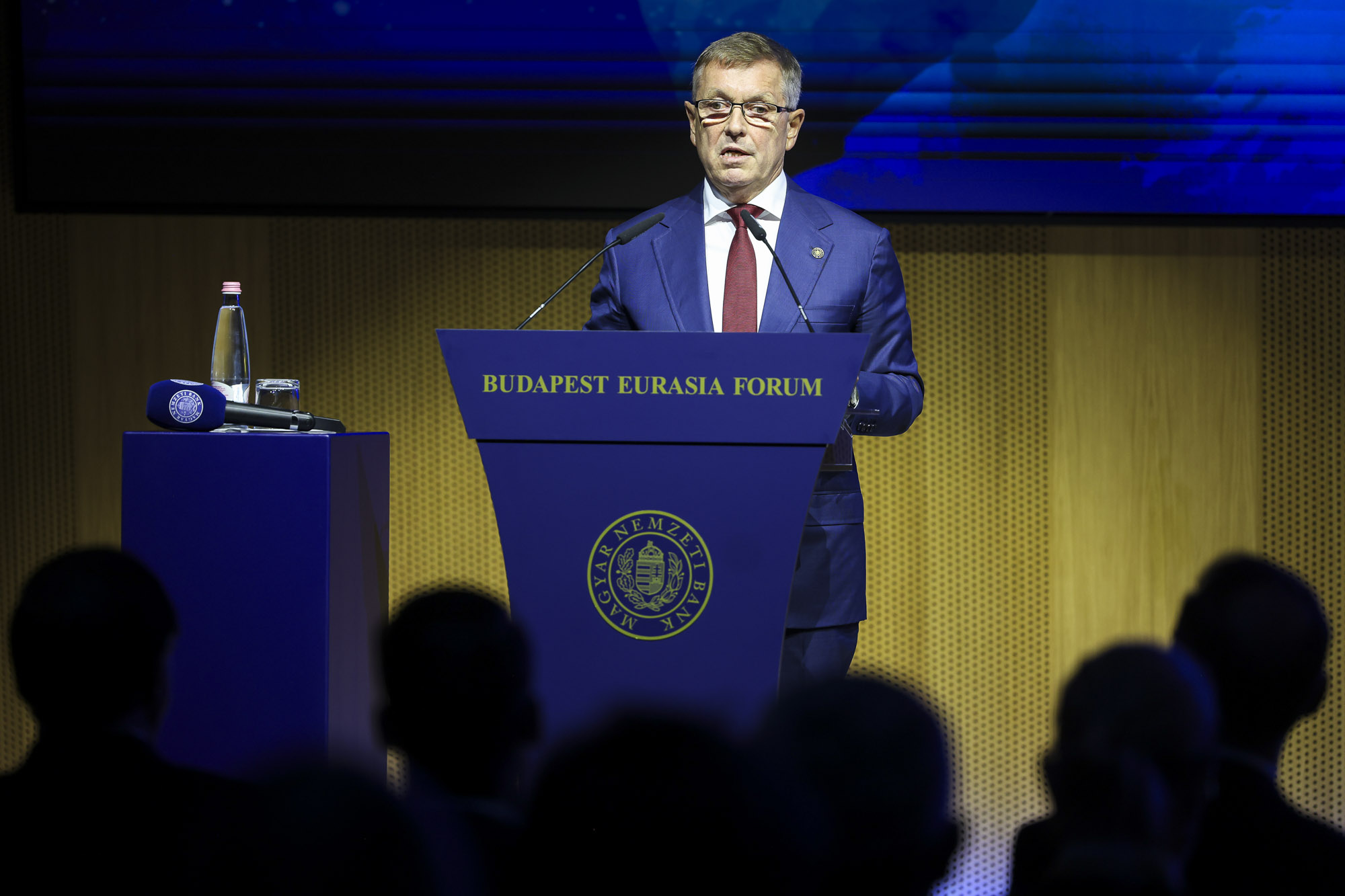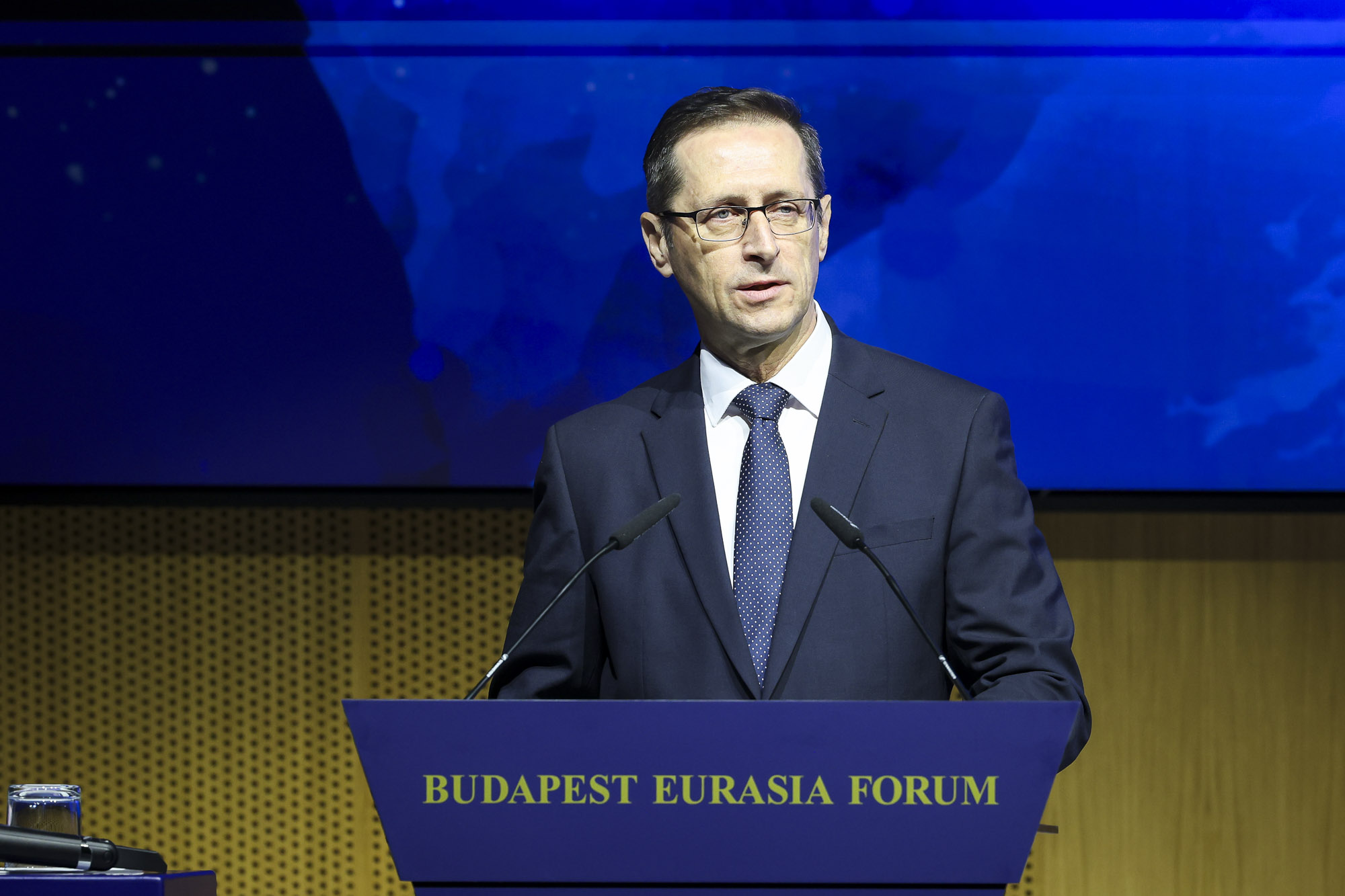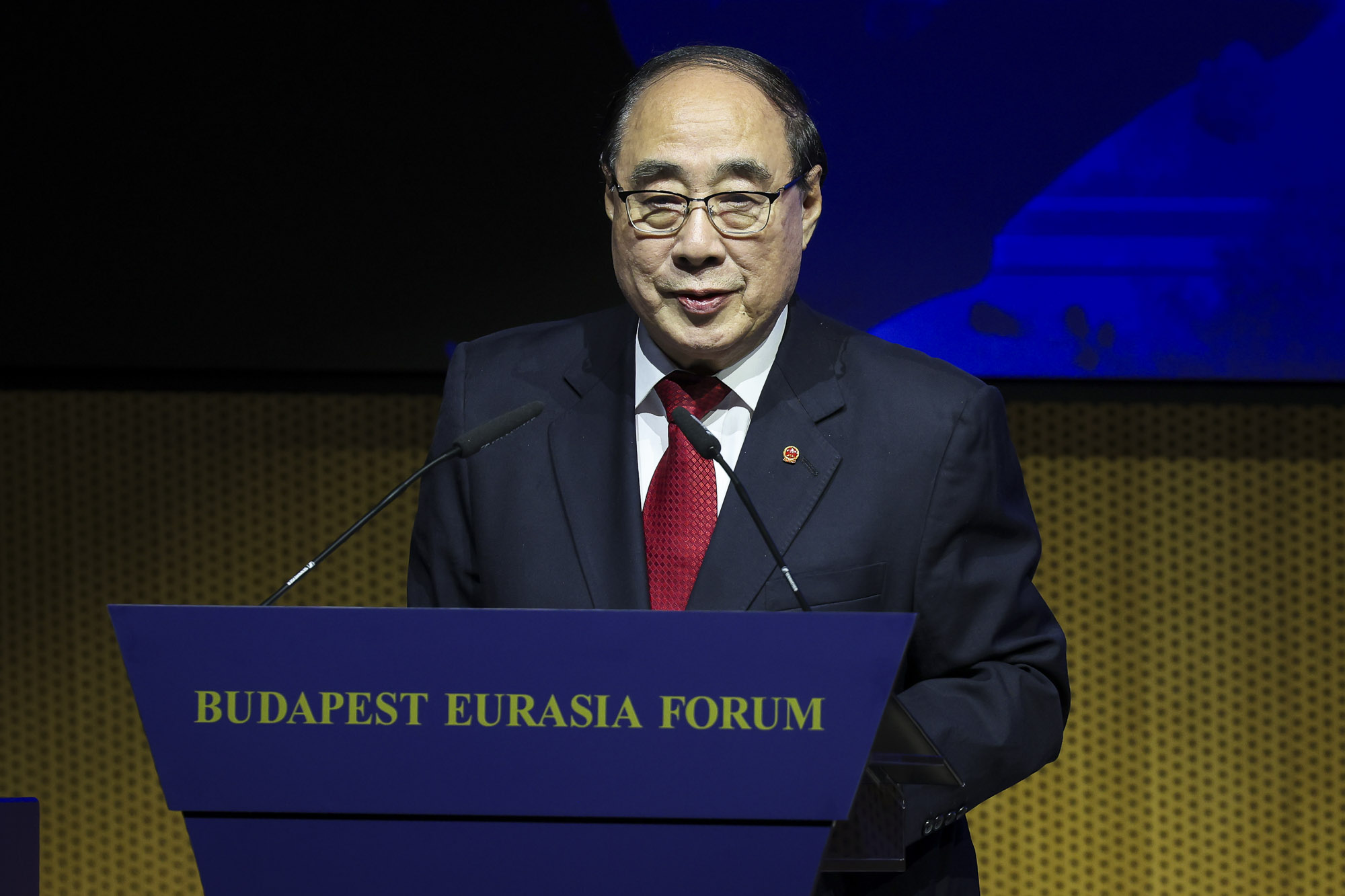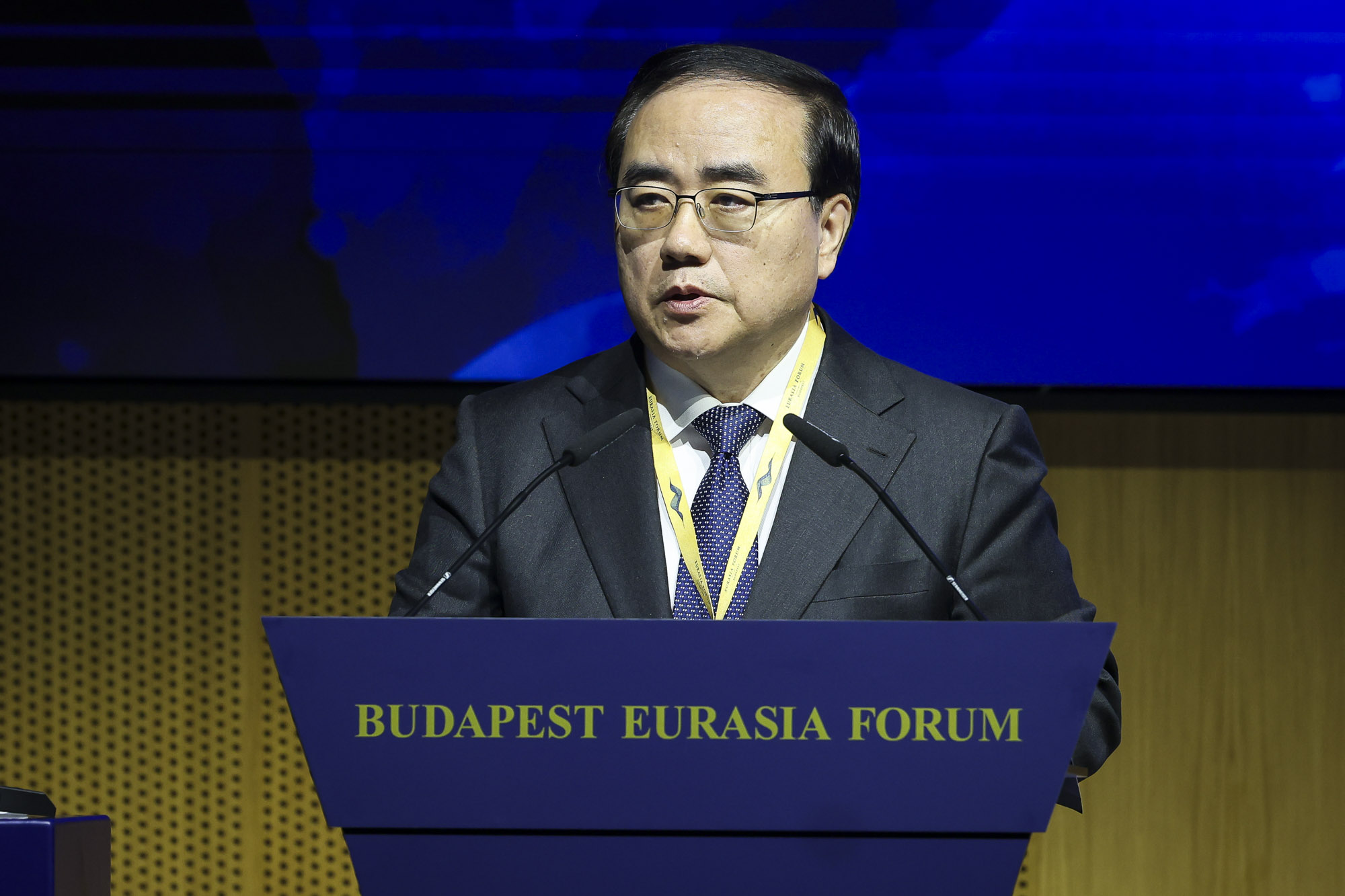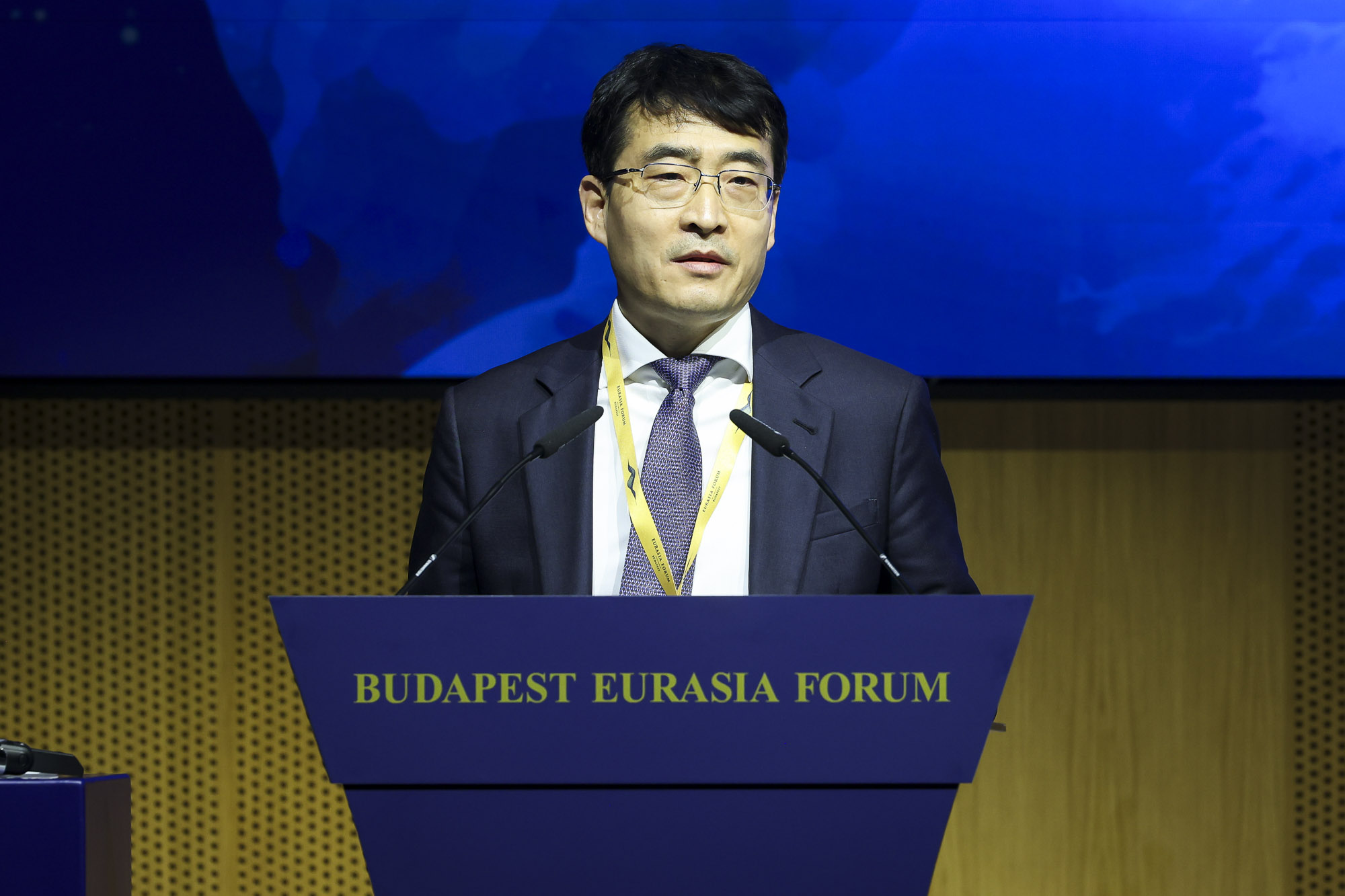Wu Hongbo, the Chinese government's special representative for European affairs, underlined China's commitment to peace, sustainability and multilateral cooperation. He said it was shocking that the international community could not stop the humanitarian crisis in Gaza.
Turning to the issue of international cooperation, he criticised phenomena such as unilateralism, protectionism and zero-sum thinking (i.e. the idea that in a game, as much as one side wins, the other loses). All these phenomena, he said, threaten multilateral cooperation. He noted that some big countries are abusing the concept of national security, creating new risks under the banner of derisking, and hampering cultural and technological exchanges under the banner of decoupling between the Chinese and Western economies. As he said, an open world economy is needed, which is why China is firmly opposed to these Western efforts. He also stressed China's commitment to the UN's Sustainable Development Goals (SDGs), to helping developing countries eradicate poverty and to making the fight against climate change a priority. Wu Hongbo said that we must work together for world peace and prevent the world from being dominated again by the Cold War mentality and zero-sum approach.
